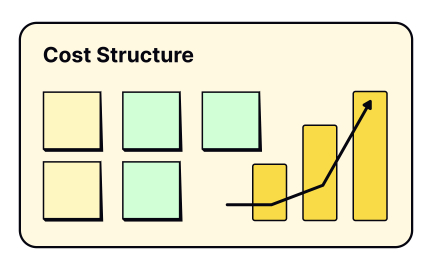Financial Modeling & ROI Calculation
Financial modeling involves estimating a product’s costs and returns to help teams assess risk, prioritize features, and communicate business impact clearly.
What is Financial Modeling & ROI Calculation?
Financial modeling and ROI calculation involves creating mathematical representations of business performance that enable data-driven decision-making about investments, pricing strategies, and resource allocation through quantitative analysis of costs, revenues, and returns. These models help organizations evaluate project viability, compare alternatives, and communicate financial impact to stakeholders using spreadsheets, specialized software, and analytical frameworks.
This discipline encompasses business case development, investment analysis, forecasting methodologies, sensitivity analysis, and scenario planning that enables strategic decision-making based on financial projections and risk assessment.
Financial Modeling in Product Management
Product managers use financial models to evaluate feature investments, justify product initiatives, and communicate business impact to executives and stakeholders who make funding decisions.
Product investment prioritization and business case development
Create models comparing different product investments based on development costs, expected user adoption, revenue impact, and resource requirements. Models help prioritize features that deliver the highest return on investment.
Pricing strategy development and revenue optimization
Model different pricing scenarios including subscription tiers, usage-based pricing, and freemium conversions to optimize revenue while maintaining customer satisfaction and market competitiveness.
Market opportunity assessment and growth planning
Quantify total addressable market, customer acquisition costs, and lifetime value to evaluate market entry decisions and growth strategies with realistic financial expectations.
Resource requirement planning and budget justification
Model headcount needs, technology investments, and operational costs required to achieve product goals, enabling accurate budget requests and resource allocation discussions.
Core Financial Modeling Components
Revenue modeling and forecasting:
- Customer acquisition: Modeling user growth rates, conversion funnels, and market penetration over time
- Pricing strategies: Evaluating different pricing models and their impact on revenue and adoption
- Upselling and expansion: Projecting revenue growth from existing customers through additional features or services
- Market dynamics: Incorporating competitive factors and market maturity into revenue projections
Cost analysis and expense modeling:
- Development costs: Engineering time, design resources, and technology infrastructure required
- Operational expenses: Ongoing costs including hosting, support, maintenance, and updates
- Customer acquisition costs: Marketing spend, sales efforts, and conversion optimization investments
- Indirect costs: Administrative overhead, legal compliance, and organizational support
ROI calculation methodologies:
- Net Present Value (NPV): Calculating current value of future cash flows using appropriate discount rates
- Internal Rate of Return (IRR): Finding rate that makes NPV equal zero for investment comparison
- Payback period: Time required to recover initial investment through generated returns
- Return on Investment (ROI): Simple percentage return calculation for basic investment evaluation
Financial Modeling Tools and Software
- Microsoft Excel: Industry standard with advanced financial functions and modeling capabilities
- Planful: Financial planning platform with scenario modeling and reporting features
- Quantrix: Multi-dimensional modeling software for complex financial analysis
- Tableau: Data visualization platform for presenting financial model results effectively
- Power BI: Microsoft's business intelligence tool with financial reporting capabilities
- Looker: Modern BI platform with SQL-based modeling for financial data analysis
- QlikSense: Interactive analytics platform for financial data exploration and presentation
Recommended resources
Courses

Business & Technical Fundamentals for PMs

Product Discovery

Product Analytics
Lessons

Business Model Canvas

Introduction to Churn Metrics and Analysis






